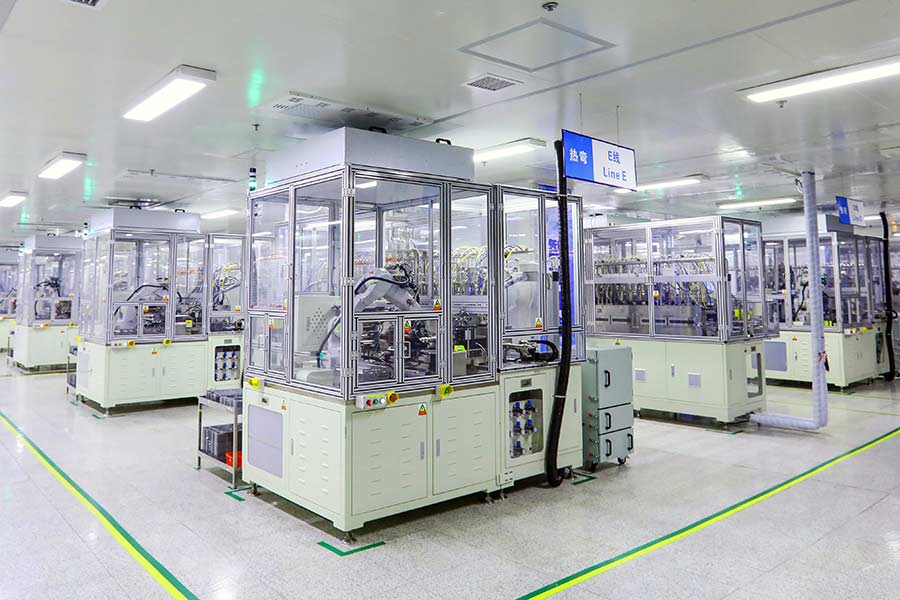BYD Electronics unveils 5G strategy
By Chai Hua in Shenzhen | chinadaily.com.cn | Updated: 2019-04-10 11:16

BYD Electronics (International) Co Ltd, a subsidiary of China's carmaker BYD Co Ltd, launched on April 8 its 5G strategy, as more and more mobile phone brands have released new 5G products.
The name BYD has become synonymous with its new energy vehicles, while its manufacturing power in electronics has been relatively unknown among the public.
BYD Electronics, listed on the Hong Kong Stock Exchange in 2007, is one of the world's top mobile phone manufacturers.
"Two out of every 10 mobile phones in the world have applied our technology," said its CEO Wang Nianqiang at a media conference on Monday.
Wang claims BYD Electronics is the world's only company that can manufacture all metal, glass, ceramic and plastic components of mobile phones on a large scale and provide overall handset design solutions.
One of its most important products is the mobile phone rear cover. The world's first mobile phone with a metal cover, launched by HTC in 2013, integrated BYD Electronics' technology. The technology can realize "seamless integration" between metal and plastics, a key to making metal components for handsets, according to the company.
So far, such technology has been adopted by Samsung, Huawei, Vivo and many mainstream phone brands. In 2018, the manufacturer shipped 200 million units of such metal components, accounting for one-third of the world's total.
However, as the 5G era approaches, metal has become unsuitable for phone covers in the new generation of communication. The company has started to develop new material to meet the demand of 5G mobile phones, focusing on three-dimensional glass and ceramic varieties.
According to China Merchants Securities, BYD Electronics' capacity for 3D glass rear covers could reach 200 million units in 2019.
In addition, Wang said 5G communication will also support the rapid development of the Internet of Things and intelligent vehicles, so they are eyeing the two sectors for the future as well, including robots, intelligent speakers, sensors, communication modules, intelligent watches and earphones.
Another reason he admitted is that the market for mobile phones and laptops is relatively stable now.
He expects the two sectors will become the new driver for the company's growth and bring in revenue above 100 billion yuan per sector in the next five to 10 years.
























